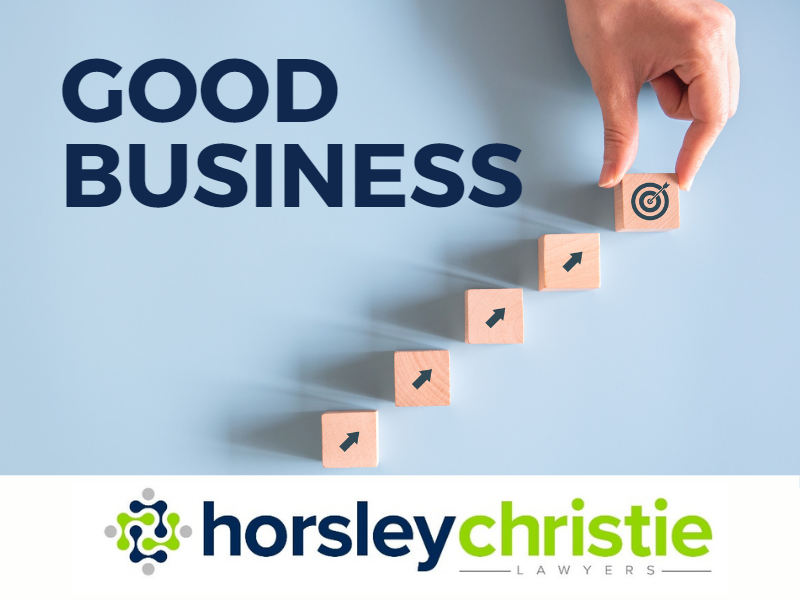As there are many small businesses in New Zealand, it is common practice for a director of the company to be dealing directly with a customer during a transaction.
It is important that directors do not breach the Act, as the law allows for a director to be held personally liable for such a breach.
What constitutes a breach under the Act?
The main breaches under the Act are when an individual (or a business) in trade:
- Engages in conduct that is unconscionable;
- Engages in conduct that is misleading or deceptive or is likely to mislead or deceive;
- Makes an unsubstantiated representation; or
- Makes a false or misleading representation in relation to goods or services.
Is the “corporate veil” applicable?
It is well established that a company is a separate legal entity from its directors, shareholders, employees, and agents (“the corporate veil”).
The corporate veil is a metaphoric veil with the company on one side and the directors/shareholders etc. on the other side. Liability does not pass through the company side to the director/shareholder side.
In theory this means that if a director breached the Act, the corporate veil would protect them from personal liability.
Section 45
However, Parliament was not happy with the prospect of directors being protected by the corporate veil. Which is where section 45 of the Act comes into play.
Section 45 states:
- Where, in proceedings under this Part in respect of any conduct engaged in by a body corporate, being conduct in relation to which any of the provisions of this Act applies, it is necessary to establish the state of mind of the body corporate, it is sufficient to show that a director, servant or agent of the body corporate, acting within the scope of that person’s actual or apparent authority, had that state of mind.
- Any conduct engaged in on behalf of a body corporate—
- by a director, servant, or agent of the body corporate, acting within the scope of that person’s actual or apparent authority; or
- by any other person at the direction or with the consent or agreement (whether express or implied) of a director, servant, or agent of the body corporate, given within the scope of the actual or apparent authority of the director, servant or agent—
shall be deemed, for the purposes of this Act, to have been engaged in also by the body corporate. In summary, section 45 deals with comparing the state of mind of the director, to the state of mind of the company. If the two states of mind are the same and the director acted within their scope of authority, the Court can hold the director personally liable for breaching the Act.
What have the Courts said?
In Cornfields Ltd v Gourmet Burger Co Ltd (2000) 9 TCLR 698(HC), McGechan J said at paragraph 27:
“It will be a rare case where a director who participates directly in negotiations as to his or her company’s business will be able to avoid s 9 liability simply on the basis that he was acting only on the company’s behalf. The Fair Trading Act is in our view intended to cast its net wider than that.”
This was upheld by the Court of Appeal in Kinsman v Cornfields Ltd (2001) 10 TCLR 342(CA), where the Court stated further that the word “also” in s 45(2) of the Act suggested that both the director and the company itself could be liable under the Act when a director acted within their actual or apparent authority.
In the 2004 Court of Appeal case of Giltrap City Ltd v Commerce Commission [2004] 1 NZLR 608, the principal and chief executive of Giltrap City entered into a price fixing arrangement which was contrary to the Commerce Act 1986. The Court found that the principal and chief executive had acted in the scope of their actual/apparent authority. Therefore, the Court determined that their conduct was that of the Company and they were both personally liable under the Commerce Act. The Court said further at paragraph 54 that, “there cannot in our view be any material difference … between s 45 of the Fair Trading Act and s 90 of the Commerce Act.”
Summary
Both the company and the director can be held liable for a breach of the Act due to s 45 of the Act giving the Court the ability to pierce the corporate veil. As such, it is really important that your terms of trade and your general business conduct do not breach the Fair Trading Act.
If you have any questions, please contact us for an appointment T: 06 3490090 or email mattb@horsleychristie.co.nz. You can also visit our website at www.horsleychristie.co.nz
Matt Bouzaid LLB Bcom
SOLICITOR
Disclaimer: This publication should not be construed or acted on as legal advice. It is brief and general in nature. Specific advice should be sought.

Recent Comments